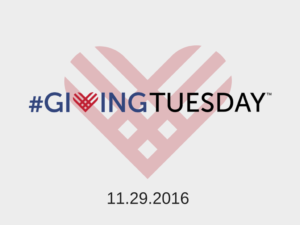What Kept This Homeless Man from Changing
#GivingTuesday Special:
What Kept This Homeless Man from Changing –
And How One Conversation with a Babysteps Volunteer Broke Him Free
#GivingTuesday Exclusive:
Make Change Possible for Seattle’s Homeless!
Help us reimburse our volunteers for the ‘Conversations with a Meal’ they have with homeless people.
Give $18.49 a month, and we’ll multiply the number of homeless we help turn their lives around.
At least 90% of the solutions to homelessness miss the mark.
Why? Because they approach it as a “social problem,” and not a “heart problem.” Last month, if you had put someone like Justin in free public housing, it would have made zero difference. He’d have been worse off a month later.
But today? You don’t have to put him in free housing, because he’s going after that – and much more – all on his own. He’s taking baby steps to change his life. And it all happened because of one conversation with Pete, a brand new Babysteps volunteer who had just attended his first volunteer training.
We’ll get back to Pete’s role in a moment, because that is its own amazing story.
But back to Justin. His struggle wasn’t lack of food or clothing. It wasn’t “income inequality.” It wasn’t the system that let him down.
Anger, Resentment, and Detachment from Life
Privacy Note
For all stories of Our Homeless Friends, the names have been changed to respect the privacy of the people involved. This is also why we don’t have photos – unless that person has given us their explicit consent.
Justin harbored deep anger and unforgiveness toward his ex-girlfriend. How serious a problem was this? In his own words, he “hated” her. When he meets Pete, as well as Peter Kim the Babysteps founder (yes their names almost the same…try to keep track!), he goes off about how much he despises her. They just listen.
Justin’s anger toward her went both directions. He had said and done terrible things to hurt her. But she had also hurt him in deeply painful ways too. Though they’re no longer together, Justin had carried this bitterness toward her for a long time. And it had led him to the streets. Eventually, in September of 2016, he ends up at a Babysteps Relational Meal Event, where he meets Pete and Peter.
Justin had hit bottom. He had contemplated suicide. But he didn’t follow through because he didn’t want his two sons to see him end his life.
Pete, the brand new volunteer, enters into the conversation and puts all his training to use. Here’s how Peter Kim describes it:
“He [Pete] asked him the right questions, had the right body posture, head tilt, diagnosed then prescribed Jesus. I literally stood back, started to kick the branches under me and just be in an observer position. Pete asked the right questions that led to Justin tearing up.”
3 Things Our Volunteer Did to Help Justin
What did Pete say to so impact the life of a hardened homeless man he had just met?

“The streets are full of people waiting to be listened to.”
~Pete, Babysteps Volulnteer
1. He uses his training.
Yes, there really is a “right” way to interact with a homeless person. The reasons why this is true are too complex to explain here. But come to a volunteer training and you’ll get a full explanation and a chance to practice interactions using these skills. Body language is a big part of it.
2. He empathizes.
As it turns out, Pete himself used to be homeless earlier in his life. He knows where Justin’s pain lives, and understands what holds him down. They talk about this for a while.
3. He shares Jesus’ love with Justin.
This doesn’t happen in every conversation, nor is it expected or required by Babysteps. But this conversation leads straight there. Why? Because Pete sees immediately that Justin’s hatred and anger are the very reason he’s stuck on the streets, unable to change, unable to grow, unable to escape.
And the solution to anger and hatred isn’t counseling. It’s forgiveness.
So, the conversation ends. Justin takes Peter’s card and says he’ll call, and they go separate ways.
A
Homeless People Aren’t Known for Follow-Through
Now, let’s stop here for a minute. How many times do you think Peter and the Babysteps volunteers have given out cards and contact information, with promises from a homeless person to follow up in some way?
They’ve lost count. In fact, one of Peter’s top priorities is to get their contact information so he can follow up with them because he knows they won’t do it.
Homeless people are well-known to say and promise all kinds of things but then disappear and never follow through. Why? Sometimes, because of the very issues Justin struggles with – anger and hatred, which are great friends with mistrust, suspicion, and fear. Not to mention that hatred of others almost always leads to or comes from hatred of self.

But Justin Does!
But that same week, Justin calls Peter and asks to meet! This is amazing, and worth dwelling on. That he would call Peter on his own and want to talk more, based on a single conversation with two people he had never met before, speaks volumes of the incredible power of a real conversation – the kind Babysteps trains its volunteers to shoot for when they go on Meal Events.
So Justin calls Peter, and they meet up twice in one week for more discussion. Peter pours into him, and shows Justin the kind of genuine love and concern he probably hasn’t known for years. Justin even decides to go to a church near him, again all on his own.
These are baby steps. Some homeless people aren’t ready for steps like these as fast as Justin is. But after he comes to church, we get to the really amazing part of the story.
A Life-Changing Moment – A New Story Begins
The next day, Justin calls his ex-girlfriend. He tells her how sorry he is for the way he treated her. He owns up to his role in their broken relationship. And – he forgives her for all the ways she hurt him. And he doesn’t do this as some selfish attempt to get back with her. He has no interest at all in that. He does it to heal himself, and to give her the chance to heal herself.
He does it to move on.
Immediately after hanging up the phone, Justin describes feeling a huge burden lift off his body, an almost physical sensation. The anger, hatred, and bitterness have gone away. His entire outlook on life has changed.
And now, after finally dealing with the underlying “heart” issue that had kept him in cycles of despair and homelessness, Justin is ready to take his baby steps:
- He found a clean shelter to stay in for now.
- He’s looking at trying to go back to school, and is even looking at getting his FAFSA in order.
- He’s looking at getting a job at a convenience store.
All this within days. This is a guy who was on the street for years. Think about that…
Justin’s story isn’t finished. In fact, it’s barely begun. But now, because someone cared enough to listen and meet with him, he can start living, because he’s gotten past his anger and forgiven the person who hurt him.
Do you see that?
The conventional approach is “housing first.” Get him off the street. Then, get him access to “services” that will no doubt try to compel him to do things like go back to school and try to get a job – things Justin is now doing.
But that approach skips the step – the most vital and life-changing step – that MUST be taken if those other things are going to have any staying power. That step is a personal relationship with someone who cares enough to walk with them through the really hard stuff – the mental, emotional, and relational wounds that are the real reason they’re on the streets.
This is what Babysteps does, and what our volunteer training empowers people like Pete to do.
Key Takeaways from Justin’s Story
1. Volunteer Training Really Works!
Getting back to Pete now, remember that he had never been to a Relational Meal Event, and he attended this one right after his first volunteer training. Yet he was able to put his training to use, and use his own care and empathy for Justin to make an immediate connection with him.
And it was Pete’s bonding with Justin that led to Peter’s meetings with him later in the week. And these conversations touched something deep in Justin’s heart, because he decided all by himself to call up his ex-girlfriend and forgive her, and remove the biggest blockage that has kept him aimless, homeless, and in despair for so long.
No, your impact isn’t always going to be this fast. But it could be, because friendship is powerful. There is no substitute. And you just never know who you’re going to meet at a Meal Event. As Tom Hanks says in Castaway, you never know what the tide will bring in.
The training prepares you for moments like this so that when they do happen, you are empowered to change a homeless person’s life in a profound way.
If you want to try this out, sign up for our next Volunteer Training
2. Forgiveness Is Powerful!
Dr. Karl Menninger, a famous psychiatrist from years back, is well known for pointing out that if we could “convince patients in psychiatric hospitals that their sins were forgiven, 75 percent of them could walk out the next day.”
And the same burdens lift when we forgive others, as Justin learned. So many homeless people are plagued by mental illness. The news constantly peppers us with this fact. But Justin’s story has to make you wonder:
How many homeless people would see their lives radically change if someone showed them the power of forgiveness, and helped them forgive the people who have hurt them?
 This #GivingTuesday – Join the Babysteps Mission of Healing Homeless Wounds
This #GivingTuesday – Join the Babysteps Mission of Healing Homeless Wounds
Have you ever felt aimless or discouraged?
Have you struggled with forgiveness, either giving it or receiving it?
Did you have a friend to help you get through these hard times?
Most homeless people have no one.
You can make possible more conversations like the ones Peter had with Justin.
The main reason we don’t have more conversations like this is because of two reasons: time and expense. You can set a homeless person free from whatever keeps them from taking the steps to change their life.
You can do this by empowering a volunteer to share a lunch once a month with a homeless person. They’re already sacrificing their time. And they do so freely. But more of our volunteers can be that committed friend to the homeless if you’ll partner with them to make these one-on-one meals possible.
The average cost of a simple lunch for two people is $18.49. You go out to eat a lot, if you’re like most Seattleites. This is just one meal a month, but instead of eating it yourself, you’re choosing to use it to be a friend to a homeless person who desperately needs one.
This #GivingTuesday, pledge to give a monthly gift of $18.49, and make it possible for a Babysteps volunteer to take a homeless person to a meal and have a caring conversation.
2 Comments
-
 Mike Peters says:
Mike Peters says: I know a homeless gentleman where giving a a bar of soap got him to open up and share his story. He is now in a program so he can have shelter. It is encouraging to see where giving a 80 cent bar of soap and being a friend can do. Sinc ealcohol came into play on both sides it reassured me that I also can stay quit from that.
Leave a Reply Cancel reply

Upcoming Events
Take Your First Step -
REACH OUT TO US
Questions about our program? Want to join us and serve a meal? Interested to spend a day getting to know a homeless person? Reach out and someone from our staff will get back to you within 48 hours.
© Copyright 2021 Baby Steps Ministry
Taking Baby Steps Toward Transformation

Excellent story of the power of forgiveness. I am blessed to see the heartfelt compassion through your love of Jesus that touches an unforgiving soul.